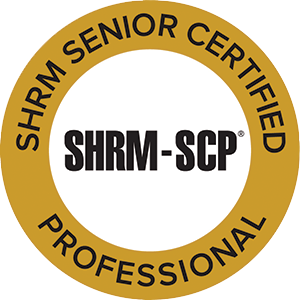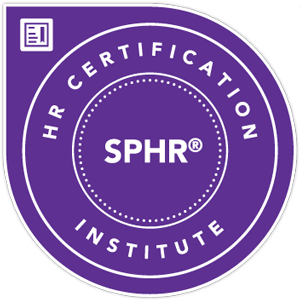 Meetings are testing grounds for leaders. This is where you can show your strengths and generate ideas. It can also be a time of boredom and frustration for meeting attendees. Fortunately, by following a few simple tips you can keep your meetings productive.
Meetings are testing grounds for leaders. This is where you can show your strengths and generate ideas. It can also be a time of boredom and frustration for meeting attendees. Fortunately, by following a few simple tips you can keep your meetings productive.
Here are some strategies to remember when running a meeting.
Have a Written Agenda
Meetings can feel unproductive when they get derailed. An attendee can bring up a related, but irrelevant topic and the discussion completely shifts gears. Now you’ve lost control of the room. Having a written agenda and sticking to it can fix this common meeting problem. Not only will you and attendees stay on track, you will also be able to make sure you get through every key point. You can also specify a certain number of minutes per topic. Doing so will keep your meeting running smoothly and keep your attendees interested throughout the meeting.
Keep it Short
Let’s face it, no one wants to sit in on meetings for most of the day. Employees have other work tasks and, frankly, many consider meetings to be a tedious part of working life. To keep attendees engaged and happy throughout the meeting, keep it short. Keeping meetings under an hour is best for most topics. And once your specified time is up, let them go. Sticking to the agenda and ending the meeting at the specified time is a great way to show your attendees you respect their time.
Encourage Participation
Productive meetings take attendees’ viewpoints into consideration. People like to know their ideas are heard and allowing them the chance to do so is a great confidence building strategy. Encouraging participation also leads to better meeting outcomes. Attendees who have contributed their opinion are more confident in pursuing those goals once the meeting is over. It is important to be as inclusive as possible. If you notice there is someone who rarely speaks up in meetings, reach out to them beforehand and ask that they contribute their opinion. This way, they will have time to prepare.
Make an Action Plan
People can interpret the same conversation several different ways. The same holds true for meetings. While one attendee understands a certain task as having priority, another attendee might believe a different task is to be completed first. To minimize these types of misunderstandings, it is important to make an action plan and follow up. Make a list of key tasks and their priorities and send them out via email after the meeting has concluded.
Meetings don’t have to be inefficient. With a few preparations, you can run engaging and productive meetings that yield great results.

 Great leadership can be an invaluable tool that, when used correctly, can hone a group into a highly effective team. I recently asked my Facebook Community to describe a great leader in one word. Some of the terms that came up in the conversation were responsible, serving, motivating and inspirational. By using some of these examples we can find ways to improve our own leadership skills.
Great leadership can be an invaluable tool that, when used correctly, can hone a group into a highly effective team. I recently asked my Facebook Community to describe a great leader in one word. Some of the terms that came up in the conversation were responsible, serving, motivating and inspirational. By using some of these examples we can find ways to improve our own leadership skills. Every job today demands top notch communication skills. George Bernard Shaw once said, “The greatest problem in communication is the illusion that it has been accomplished.” You may have been on the receiving end of this illusion once or twice. Developing communication skills is a great career booster.
Every job today demands top notch communication skills. George Bernard Shaw once said, “The greatest problem in communication is the illusion that it has been accomplished.” You may have been on the receiving end of this illusion once or twice. Developing communication skills is a great career booster. The interview process is designed to assess which candidate should be hired to fill a job vacancy. In order for a hiring manager to learn all they can about a candidate during this process, it is imperative to engage in meaningful conversations with candidates during this process. All too often hiring managers will try to “wing it” by asking questions that come to them during the interview. Another common mistake is that they are too busy focusing on asking the next question, they miss important information about the candidate.
The interview process is designed to assess which candidate should be hired to fill a job vacancy. In order for a hiring manager to learn all they can about a candidate during this process, it is imperative to engage in meaningful conversations with candidates during this process. All too often hiring managers will try to “wing it” by asking questions that come to them during the interview. Another common mistake is that they are too busy focusing on asking the next question, they miss important information about the candidate. Whether you are looking for a job or establishing yourself as a leader in your organization, your social media presence counts. Good resumes are a first step, but that alone doesn’t cut it anymore. Is your social media working for you or against you? Using your online presence to bolster your career will get attention.
Whether you are looking for a job or establishing yourself as a leader in your organization, your social media presence counts. Good resumes are a first step, but that alone doesn’t cut it anymore. Is your social media working for you or against you? Using your online presence to bolster your career will get attention. Good news conversations are easy. Your leadership really gets tested, however, in the difficult ones. There are many reasons why leaders need to have difficult conversations. It could be an employee’s poor work performance is impacting the bottom line. Or a conflict affecting the department may need to be addressed.
Good news conversations are easy. Your leadership really gets tested, however, in the difficult ones. There are many reasons why leaders need to have difficult conversations. It could be an employee’s poor work performance is impacting the bottom line. Or a conflict affecting the department may need to be addressed.





